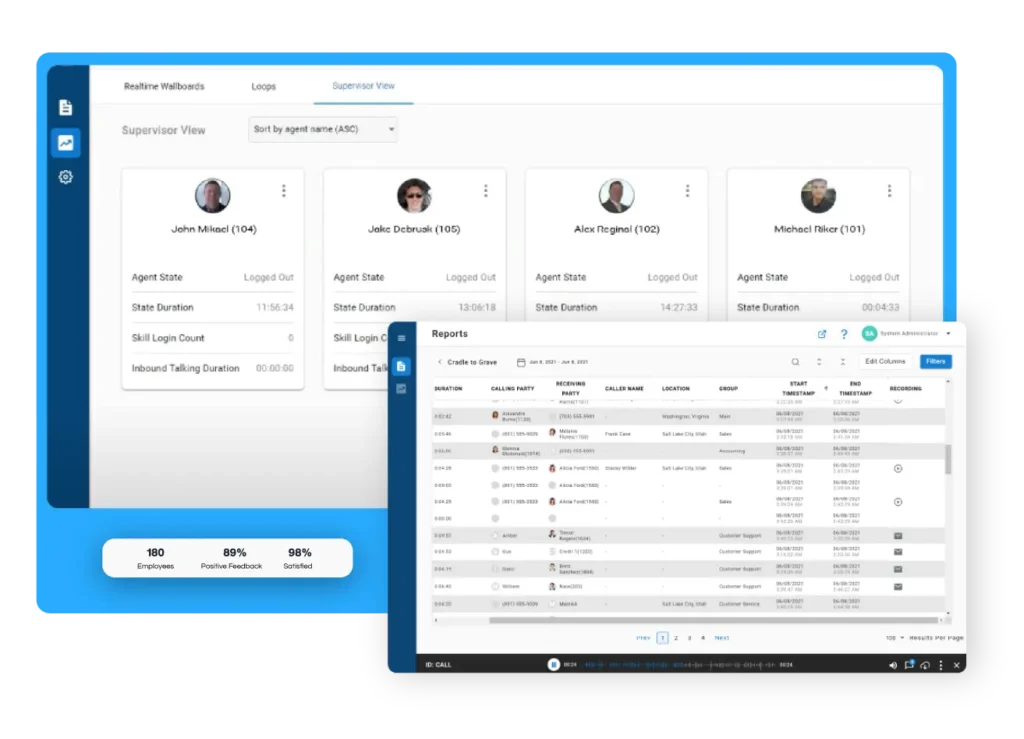In healthcare, every interaction matters. Patients expect compassionate and efficient service, and regulators expect strict compliance with data protection laws, such as HIPAA. The challenge? Delivering both consistently, at scale. That’s where AI steps in.
AI isn’t just transforming healthcare delivery in clinics and hospitals. It’s reshaping how contact centers support patients, automating critical tasks, enhancing responsiveness, and ensuring the safekeeping of sensitive health information. This article examines how AI-powered solutions enable healthcare contact centers to navigate the complexities of compliance while maintaining the personalized, high-quality support that patients deserve.
Why AI Compliance Matters in Healthcare Contact Centers
Healthcare contact centers deal with more than just scheduling and billing.They’re often the first point of contact for patients dealing with sensitive health issues, prescription refills, test results, or insurance questions. These interactions involve Protected Health Information (PHI), which means every call, chat, and message must meet the stringent requirements of HIPAA.
Unlike other industries, the stakes in healthcare aren’t just legal. They’re deeply personal. Breaches can erode patient trust, result in severe penalties, and harm an organization’s reputation. That’s why AI data privacy compliance isn’t optional. It’s foundational.
How AI Strengthens Compliance in Patient Communications
AI tools are designed to handle large volumes of data, identify anomalies, and perform repetitive tasks without fatigue. In a healthcare contact center, these capabilities translate into better compliance, reduced risk, and more time for human agents to focus on empathetic patient care.
Real-Time Monitoring and Redaction
AI-powered systems can automatically detect PHI during conversations, such as names, addresses, or medical conditions, and redact it from transcripts and recordings. This not only protects patient data but also ensures that every interaction meets audit and documentation requirements.
Secure Verification and Authentication
Patient identity verification is a key step in protecting data. AI-driven voice biometrics or behavioral analytics can authenticate callers quickly and securely, reducing the reliance on manual identity checks while preventing fraud and unauthorized access.
Intelligent Consent Tracking
Whether it’s sharing lab results or sending appointment reminders, obtaining the right kind of patient consent is crucial. AI automates the tracking and documentation of these consents, ensuring that communication preferences are honored and documented without burdening staff.
Enhancing the Patient Experience Through Smarter Service
AI isn’t just a compliance tool. It’s also a powerful way to improve patient satisfaction by streamlining processes and enabling more personalized service.
Faster, More Accurate Routing
AI can understand patient intent from the first few words and route calls to the right department or specialist, reducing wait times, misdirects, and patient frustration.
Empathy in Action: Real-Time Coaching
AI-powered sentiment analysis can detect stress or confusion in a caller’s voice and provide live coaching cues to agents. This helps staff respond more empathetically in the moment, improving the quality of care and building trust.
Consistent Quality Across Every Channel
Whether patients reach out via phone, email, or chat, AI helps ensure that the tone, accuracy, and privacy protocols are consistent. By evaluating conversations and flagging deviations, AI supports staff training and continuous service improvement.
Addressing the Unique Legal Landscape of Healthcare
Unlike general contact centers, healthcare environments face a complex matrix of federal, state, and sometimes international regulations. AI helps navigate these by maintaining strict data handling practices and ensuring compliance at every step.
HIPAA: The Compliance Backbone
HIPAA compliance involves more than just securing PHI. It requires access controls, audit trails, breach detection, and protocols for patient communication. AI supports all of these, from encryption and secure storage to automated alerts when anomalies arise.
Supporting Value-Based Care Models
AI can also help healthcare providers align with value-based care initiatives by analyzing contact center data to identify gaps in care, patient follow-up needs, or social determinants of health, all while respecting privacy boundaries.
Empowering Healthcare QA and Compliance Teams
AI doesn’t replace human oversight. It enhances it. For healthcare compliance and quality assurance teams, AI filters out the noise and highlights what matters most.
Prioritizing What Needs Review
Instead of sifting through hundreds of call recordings, AI can flag only those with potential issues, saving time and helping QA teams act quickly.
Continuous Compliance Improvement
AI identifies trends in patient interactions, surfaces training opportunities, and ensures that agents consistently adhere to privacy protocols and service standards.
The Bottom Line
Healthcare organizations don’t have to choose between compliance and compassion. With the right AI tools in place, contact centers can safeguard patient data, meet evolving regulatory demands, and deliver the kind of responsive, respectful service that every patient deserves.
As the healthcare landscape continues to evolve, AI will play a crucial role in helping contact centers adapt not only to new technologies and regulations, but also to the growing expectations of the people they serve. With AI, compliance becomes more than a checkbox. It becomes a catalyst for better care.



